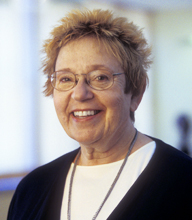

Rosie Rosenzweig.
Rosie Rosenzweig is a woman who has studied the creative mind for years and has found that creativity is a meditative process that often leads to compassion. She is a Jewish woman with a ravenous appetite for all things Buddhist, and speaks with a rapid fire cadence about many subjects with intelligence and authority.
Rosenzweig’s early poetry was anthologized in the first gender-friendly American Hebrew prayer book as well as in various feminist anthologies. As the founder of the Jewish Poetry Festival in Sudbury Massachusetts, she hosted outstanding luminaries like the former the poet laureate Robert Pinsky. Her current poetry is being collected in a work-in-progress.
Rosenzweig’s interpretations of Biblical women appear in Reading Between the Lines, All the Women Followed Her, and Praise Her Works: Conversations with Biblical Women. Her essays have appeared in Ethical Wills, Making the Jewish Journey from Mid-life through the Elder Years, and the Foreword. Her travel memoir, A Jewish Mother in Shangri-la describes the Jewish Buddhist World of meditation.
Women’s Inter-generational issues have been a focus of her work and a recently completed a play, “Myths and Ms.” At Brandeis for almost a decade, she has been interviewing artists in various media and hosting a yearly panel at the Brandeis Rose Art Museum on the creative process in an effort to understand the psychological and spiritual state of consciousness present at the moment of creation. Defining how creativity can transform the artist, she has currently coined a term called MotherArtTM.
I talked with Rosenzweig on my Somerville Community Access TV Show: ” Poet to Poet: Writer to Writer.”
Doug Holder: Your early poetry was anthologized in the first gender-friendly American Hebrew prayer book as well as in various feminist anthologies. Is there a need for a gender-friendly Hebrew prayer book?
Rosie Rosenzweig: Who knows if God is a man? Many women feel the feminine aspect of God has been underplayed. They feel that it is time for equal play. That particular prayer book was titled” Purify My Heart.” I was written up in the Wall St. Journal, and other places. It is still being used years after it was released.
DH: Do you consider yourself a Jewish writer or a writer who is Jewish?
RR: Back in 1979 I characterized myself as a Jewish poet. I was publishing in Jewish journals, etc… Then my son, who became a Buddhist, took me to France, India and Nepal to meet his teachers. I started to consider Buddhism and wrote a lot about it and my experience with it.
DH: You have interviewed many artists and writers about their creative process in an effort to understand the psychological and spiritual state of consciousness present at the moment of creation. You also believe that art has transformative power.
RR: I did a paper on this. It was with mothers and how they involved themselves in the mourning of their own mothers artistically: in films, installations, politically, etc… The Dali Lama says if you meditate compassion naturally arises. So one of my arguments is that creating is a form of meditation. When you meditate compassion arises–you let go of the story of your mother’s grief and then the compassion comes into play. For instance the artists I interviewed did creative work that helped the community in some way or a addressed a societal problem. One did a film on disability, one worked with the homeless, etc… And as you involve yourself in your creativity–you can’t help but to be transformed in some way–like the women I studied.













Reader Comments